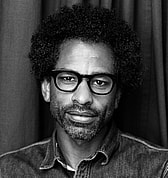The second installment of jeen-yuhs reminded me of two major elements of the Kanye story. First: The early chapter of his life as a famous person was marked by tragedy. Many fans first heard of Kanye either after the car accident that nearly took his life or after he released “Through the Wire,” where he rapped about that accident and showed the incredible resilience that would mark his career.
That accident gave his life a sense of purpose, hence the name of this week’s installment, purpose. It gave him a sense of humility and vulnerability—where rappers usually present themselves as superheroes who cannot be bothered by anything, Kanye had just barely survived a frightening car crash. It was relatable—most of us have either been in a crash or known someone who has—so it made him seem human, and yet it gave him a superpower.
Now, having survived this accident, he was filled with a supernatural sense of belonging—God had saved him so clearly his life had a special meaning. This fueled his sense that he should dream big and aggressively pursue those dreams. It made him feel anointed and exponentiated his already gargantuan ambition. The accident transformed how we saw him and how he saw himself. It softened the edges and made him seem likable while also giving him an internal voice that told him to go bigger and bigger. To treat every day like it could be his last while also knowing that he was bulletproof for a reason.
Kanye’s most recent years have been without tragedy. Watching the end of his family has been sad, but it’s not like him almost dying or his mother dying. Where those events made us feel for him, this Divorcing Kanye has made us cringe. He was the victim; now, he’s the villain. He’s like the scary, toxic, stalkerish ex-husband you hear about on Dateline. Overall, he now seems cartoonish—not just a caricature of the old Kanye, but a caricature of the modern rapper drowning in wealth and excess and as far from authentic as he can be. Hip-hop is supposed to reflect the real world back to us, but instead of Kanye popping up to interpret this world, he seems to live in another world and occasionally pulls us in. But it’s weird in his world. It’s chaotic, bizarre, postmodern, but it’s also soulless—he’s constantly at war.
This brings me to the second major element of the Kanye story that this second installment of jeen-yuhs brought up for me: Kanye is constantly at war. He’s always presenting himself as a victim who’s battling an institution that doesn’t respect him as the genius he is. Usually, the complaint is they aren’t letting him do whatever he wants, and he has to fight to show them that they should. In this episode of jeen-yuhs, the institution is Roc-A-Fella—they weren’t giving him a recording budget, they weren’t putting his album on the schedule, they weren’t seeing his vision. But at other times, the villain has been Netflix, who didn’t let him into the editing room to make sure jeen-yuhs looked exactly the way he wanted it. It’s been Nike who didn’t let him make whatever shoe he wanted. Or it’s been Marc Jacobs who…there’s always someone bigger than Kanye who doesn’t sufficiently believe in him, who he has to slay with his brilliance to reach his highest self. It’s a constant cycle that he puts himself through.

Sure, Roc-A-Fella made him jump through more hoops than a new artist usually must, but they were a young record label without established practices; all the major decisions were made by Dame Dash, and though Dash saw some of Kanye’s value, he also knew that Kanye did not fit with the aesthetic of the label. Roc-A-Fella was a street label. Jay-Z was their main guy, and like him, everyone else on the label seemed one step away from the block—like they’d bagged up some drugs just before going to the studio to make their albums. Kanye was a witty backpack rapper wearing Ralph Lauren and rapping about college and joking about working at the mall and talking about Jesus. He didn’t fit with a group of thug rappers. So it took Dash longer to understand him as an artist and truly believe in him. I understand that. But for Kanye, they were just the first in a series of villains for him to battle.
These home movies of Kanye are taking us inside the mind of one of the most enigmatic people of our day. I appreciate the chance to see how the issues that plague him today have been there all along. But as the doc flows into Kanye’s most turbulent period, I hope we’re able to unpack how much of all this is about him being mentally ill—something that has not yet been shown at all in this comprehensive doc—and how much is it about Kanye being a tortured, spoiled, entitled, arrogant, narcissistic, egomaniacal genius who needs attention and is consistently able to create compelling art. He’s someone who sees himself as a victim in a world where he’s been able to accomplish almost anything he wants. He’s a cultural phenomenon who’s pissed away every last bit of charisma or likeability. I’m intrigued and annoyed by this decades-long performance art piece of his life. I can’t stop watching.

Touré is the host of the podcast “Toure Show” and the podcast docuseries “Who Was Prince?” He is also the author of seven books.
TheGrio is FREE on your TV via Apple TV, Amazon Fire, Roku, and Android TV. Please download theGrio mobile apps today!


